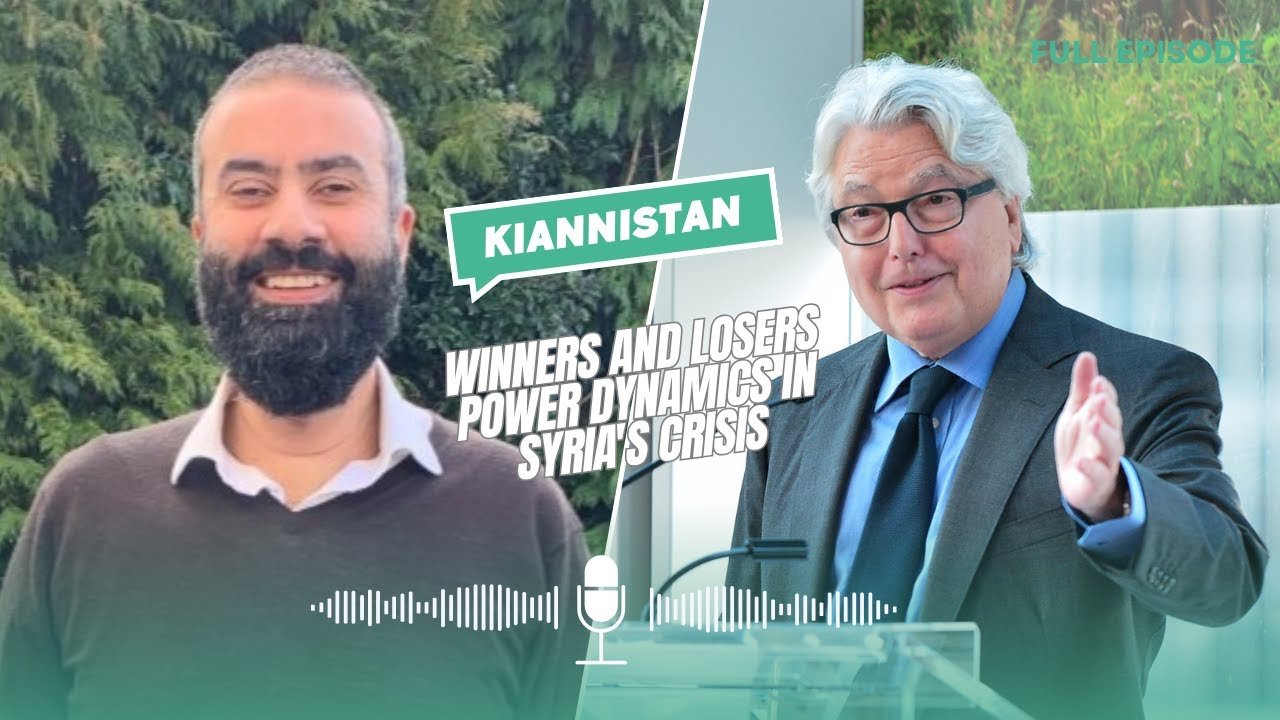Syria’s Collapse, Regional Realignments & Global Stakes – A Conversation with Eric Margolis
In Episode 22 of Kianistan, veteran journalist and geopolitical analyst Eric Margolis returns for a wide-ranging and hard-hitting discussion on the collapse of Syria’s government, the regional aftermath, and what this unraveling means for the world in 2025. With his usual clarity and fearless critique, Margolis connects the dots between the Syrian battlefield, U.S. imperial ambitions, Israeli interests, and shifting global power dynamics.
🎥 Watch the full conversation on YouTube here:
The Fall of Assad: A Long Game Finally Won
Margolis opens with a blunt assessment: Syria’s Assad government has finally fallen after years of Western and regional efforts to engineer regime change. Backed by the U.S., Turkey, and Israel, HTS (Hay’at Tahrir al-Sham)—a former al-Qaeda affiliate—swept through Syria in a matter of weeks. Cities fell, the Syrian Army collapsed with little resistance, and the Russians, mired in Ukraine, pulled the plug on Damascus.
“No one misses Assad except a few Alawites,” Margolis says, emphasizing that the collapse, while sudden, was a long-term objective of U.S. foreign policy dating back to the 1950s.
Russia’s Exit, Israel’s Opportunity, and Turkey’s Gamble
With Russia choosing to focus on Ukraine, Syria became a sideshow they could no longer afford. Meanwhile, Israel wasted no time capitalizing on the vacuum—bombing Syrian positions and degrading any military capability left behind. Margolis highlights Israel’s long-standing pattern of aiding jihadist factions when it aligns with its strategic interests.
Turkey’s role, while controversial, is framed as pragmatic. Erdogan has been burned before but remains the only Muslim leader in the region willing to act independently—hence Washington’s attempts to oust him.
A Fragmented Syria and Dangerous New Alliances
Julani, the HTS leader now poised to lead Syria, claims to have no problem with Israel and directs his enmity toward Iran. This, Margolis argues, may just be a honeymoon phase. “Rent-a-jihadi politics won’t last,” he warns. The idea that Israel can trust the very militants it helped empower is deeply flawed—and the West’s short-term joy could easily become long-term regret.
Syria, he predicts, could fracture into ethnic and religious enclaves, turning into a bigger mess than Lebanon during its civil war. And with Russia retreating and Iran on the defensive, Turkey could get dragged in deeper as Syria unravels further.
The Broader Regional Dominoes
Jordan, with its large Palestinian population, could be next in line for instability. Saudi Arabia and Egypt, despite their repression, are increasingly vulnerable as pro-Palestinian sentiment boils over. The Muslim Brotherhood, long suppressed across the region, is resurging as the only visible opposition force with historical legitimacy.
Iran, Sanctions, and the Coming Trump Era
Looking ahead to a potential second Trump presidency, Margolis warns of renewed sanctions and economic warfare against Iran. But Iran isn’t unprepared—it’s already working with Russia to bypass Western sanctions and ensure oil sales to China. The Iran-Russia-China triangle, he says, is only growing stronger in response to Western pressure.
Still, Iran remains militarily weak from the air, and its missile barrage earlier in the year accomplished little—further proof that regional deterrence lies more in asymmetry than firepower.
The BRICS Realignment and a Hope for Balance
Margolis sees promise in BRICS, particularly in proposed frameworks that prevent member states from applying externally-driven sanctions against each other. He believes multipolarity—not American unipolar dominance—is essential for peace.
Europe, he notes with concern, is deindustrializing under U.S. influence, and China’s economic foundations are shakier than they appear. The world is in flux—and peace will only come if power is balanced and restrained.
Final Reflection: Peace as Policy, Not Slogan
In closing, Margolis advocates for a radical but necessary idea: a global one-year freeze on military spending, with those resources redirected to curing cancer and investing in humanity.
“We need counterforces to balance each other,” he says. “And above all, we need peace to be the core policy—not just rhetoric.”
🎥 Watch the full interview with Eric Margolis on YouTube now: [Click Here]
📌 Don’t forget to like, subscribe, and share to keep independent analysis alive.

